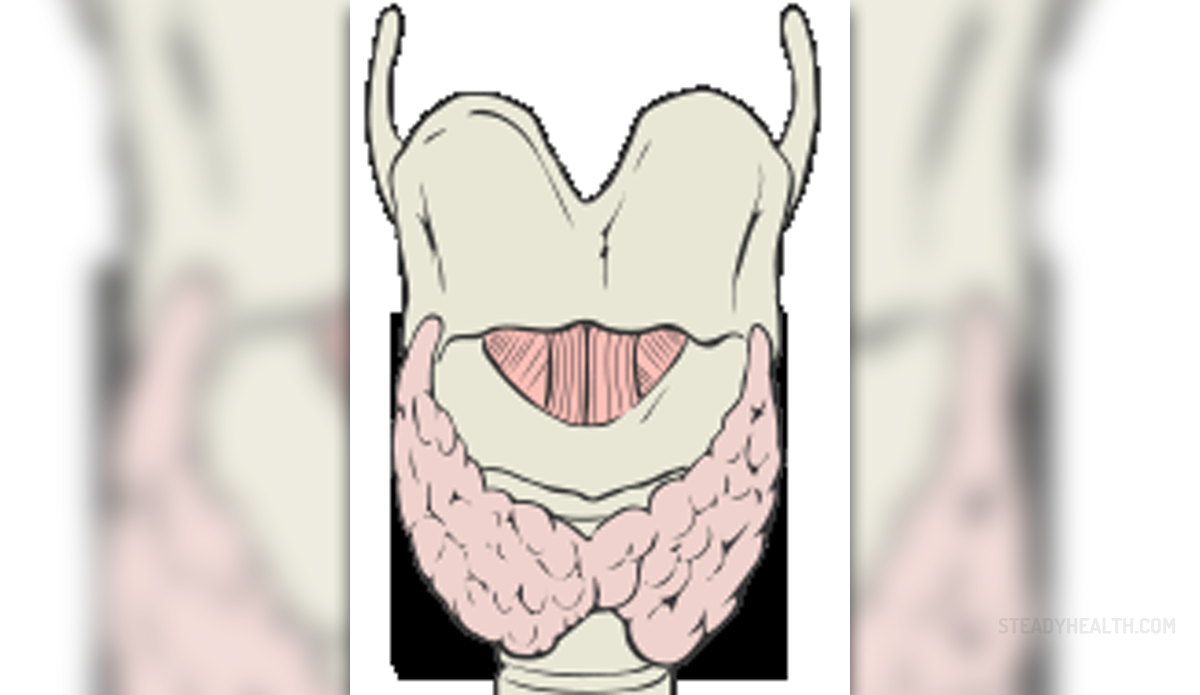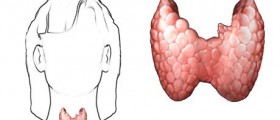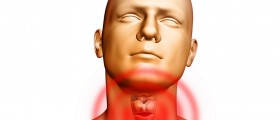
Location of thyroid gland
This gland is the small and it has a shape of a butterfly. It is settled in the middle of the neck, below the voice box. It has two parts that are located along the trachea and isthmus is connecting these two parts. In the early stages of the development in the uterus, this gland is placed at the back of the tongue. However, it changes the location while still in uterus. There is a possibility that thyroid gland remains on its initial place so the baby is, if that is the case, born with thyroid gland that is placed high in the neck. This malformation is called lingual thyroid.
Thyroid gland is very important for controlling our metabolism. There are several hormones that are secreted by this gland and all of them are responsible for producing the energy from oxygen and food that we enter. These hormones are also responsible for maintaining our body temperature.
Thyroid gland disorders
Hyperthyroidism and hypothyroidism are disorders of the thyroid gland that occur when it is not functioning in the right way. If the thyroid gland is producing too much hormones, it is called hyperthyroidism. Hyperthyroidism is a condition recognized by signs such as tiredness, mood changes, sleeping problems, problems with libido and sterility. People who suffer from Grave's disease usually have overactive thyroid gland. On the other hand, when the thyroid gland secrets less hormones than normally, a condition called hypothyroidism develops. This problem can appear if there is not enough iodine in our body, or if a person suffers from Hashimoto's thyroiditis. The main signs of hypothyroidism include dryness of the skin, tumid face, gaining weight, muscle spasms, mood changes, tiredness, and decreased blood pressure, problems with hair and nails, and slow metabolism. These are not the only thyroid disorders. The other conditions that are affecting the thyroid gland are thyroiditis, goiter and cancer and for diagnosing these disorders properly, we have to test our blood. There are also thyroid scan, ultrasound and biopsy that can be very helpful in diagnosing these conditions.

















Your thoughts on this
Loading...